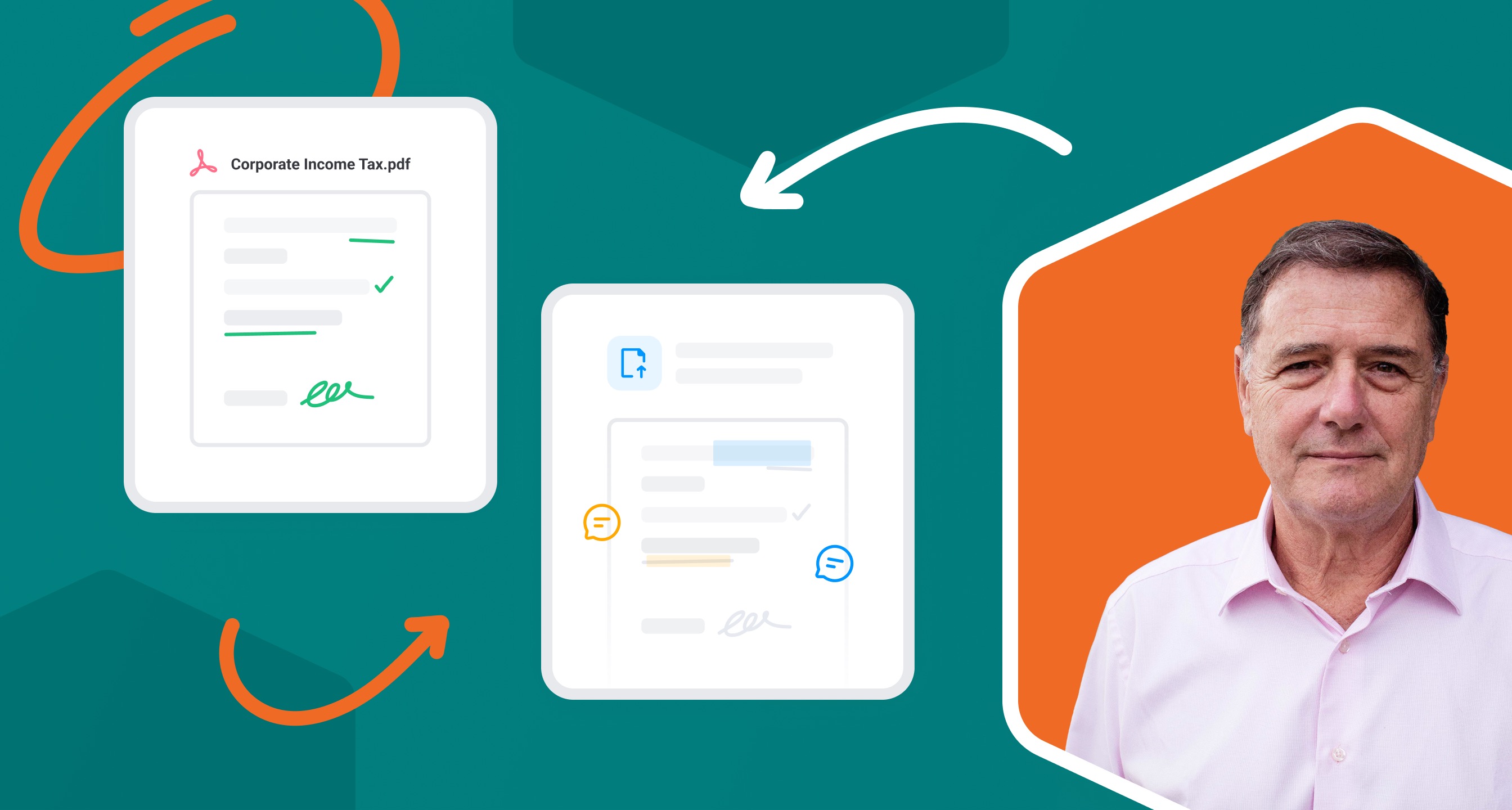Prior to Trisk, I spent almost forty years in the corporate income tax world; almost thirty of them running my own firm, VPTax, Inc. A few years ago, I decided to hang up the proverbial green eye-shade. I wanted to spend more time helping tax accountants and less time competing against them. While I believe I have accountant tendencies, I’m usually told that I’m not like other accountants.
What does that really mean?
Nothing really, other than perhaps, I’m able to step out from day-to-day activities and envision a different path. When I started my tax firm in 1991, it was to reinvent the way tax professionals interacted with clients. My former colleagues thought I was nuts. They had prestigious credentials and made lots of money. Why change?
Because I felt like most of my colleagues were struggling to find a balance between their work and personal life. Relationships with clients, while friendly and cordial, were usually strained by service or fee issues.
My philosophy was pretty simple. What made accounting firms great was also their Achilles heel, the people.
I was continually reminded of a quote I’d heard years before “To err is human but to really foul things up requires a computer.” Once again, my path diverged from the norm. My perception was quite different. Having spent decades working with large multi-national corporate tax and finance departments, I’d experienced the effectiveness of enterprise level computers and software. Once you designed the technology and implemented the hardware and software, it tended to run smoothly.
But, introduce humans into the equation and things can get really screwed up! Nobody wants to hear or admit it, but people are usually the sand in the wheel.
My plan for VPTax was simple. Use technology rather than people for leverage. This required a new kind of technology.
This is where the Trisk journey began.
The journey has been interesting. Sometimes we did things right, and at other times we completely missed the mark. The next few pages are taken from an article I published years ago on www.vptax.com. I wrote this highlighting how VPTax differed from other firms.
- If you’re an accountant, maybe I should apologize in advance. I didn’t start VPTax to be like other firms I encountered.
- If you’re otherwise new to Trisk, some visibility into my thinking is useful in understanding how the Trisk you see today came to be.
“We’d just lost a long-term client who’d outgrown VPTax. Some introspection….Focusing on a terrific 25 years and a successful 20-year client relationship, what did we do right and what did we do wrong? I think I’m safe to say we did a lot right.
- Always put yourself in the shoes of your client. Every new VPTax employee gets the same speech. “If you had to pay for our services with your own money, knowing what you know, would you do it?” Not all professionals we’ve hired can think in those terms. But I credit much of our longevity with clients to our ability to see things from their side.
- Think. Yes, I like people who get things done, but more importantly, I like smarts. We all make mistakes. Clients forget things. I screw up. But, as my mother told me over and over again, “When you’re up to your ass in alligators, it’s easy to forget you came to drain the swamp.” We’ve succeeded by staying focused on our goal.
- Respect your client. This is a place the industry struggles. Starting when a college grad is hired into a Big 4 firm, they’re praised for being the best and brightest. Many continue to believe this for an entire career. VPTax appreciates each individual, whether a 28-year-old CEO of a start-up or a 20-year veteran bookkeeper. Our job is to make their job easier and help each individual succeed. By doing so, we build long-term relationships and make friends for life.
- Tools are a critical factor. I’ve learned it’s better to hire a plumber than to try to fix a leak myself. Why? In large part, because they have the right tool for the job. The same applies to corporate tax services.
- Process. Henry Ford is my hero. He made the automobile affordable because he understood the manufacturing process. VPTax is all about the process. Believe it or not, every client is not completely unique. Every tax project is not completely unique, and every client doesn’t need or want a Bentley.
- Stay relevant. Let’s be real…if I started this business 30 years ago after being a tax partner with a Big 8 firm, I’m old enough to be the father of most of my clients. But over 30 years, there have been both constants and changes. We continue to walk in the client’s shoes. We still think and continue to respect each individual client. This is irrespective of their size, complexity, or prestige. We’re always developing new tools, adopting new processes to technology developments, and most importantly, listening to the market and our clients.
Sound too good to be true? Well, honestly, we didn’t always do everything right and had to learn from our mistakes.
- Our first 10 years were incredible. We had a great idea to compete with the Big 8. Business exploded. But we became complacent and lost our edge. Never get complacent.
- You can’t be all things to all people. Don’t try. In the early 90s, we focused almost exclusively on corporate income tax return preparation. We were amazingly profitable and worked manageable hours. As we shifted away from our core business, sure, we made more money, but our profitability suffered, and the grief factor increased. It became increasingly clear that we couldn’t continue expanding our services scope without establishing processes and tools to get better leverage.
- No matter how good a product and/or service you deliver, the market is always about “what have you done for me lately?” There are a lot of smart competitors out there who don’t always share your core values. You may think that they will say and do anything to one-up you, but the reality is that they are equally as committed to their business as you are to yours. It’s not personal, it’s business. So get over it.
We did get over it. Playing to both our strengths and weaknesses is our struggle with, and solution to, the leverage issue. By leverage, I mean hiring lots of people to do the work for you.
Personally, I owe a great deal of my success to two of my clients who partnered years ago to create a successful business. Each had achieved personal success working for big companies before joining forces. They challenged me in 1990 when I was basking in the glow of my Big 8 partnership success. They asked me why I was willing to put so much control of my success in others’ hands. (In retrospect, their advice sounds eerily like Arthur Andersen and Enron.) Their advice was simple; take measured risks where you maintain control; use leverage.
Sounds simple, right? Wrong. I’m an accountant. Accountants are notoriously risk-averse. My aversion to risk manifested in fear of leverage. If I did everything myself, I figured I could control the quality. Factually this may be correct, but it’s a horrible business model.
Somewhere in the last 25 years (actually, earlier rather than later), I learned to accept that leverage can be a great tool. It can and does generate income and profits for consulting firms. In accounting firms, it’s a crucial tool for training future directors and partners. It’s the cornerstone of their business model.
VPTax has grown to some extent based on leverage. But our trajectory is far more exciting using technology to leverage really smart people. Why?
- The traditional leverage model requires the turnover of personnel. So both the client and the experienced tax professional are forever training inexperienced personnel.
- Technology is more predictable and controllable.
- Technology is more scalable.
- The combination of technology and smart people makes the entire process more enjoyable. People spend more time on personal interaction. They are actually listening to each other, discussing ideas, and solving problems.
The final takeaway? VPTax has survived and prospered both because of me and in spite of me. Our carefully crafted team of experienced professionals recognizes the need to adapt to changes in the market, technology, and the ever-changing tax law.”
Looking back and looking forward…
When we introduced the Trisk MVP to VPTax clients in 2015, we got an inkling of the power of the concept. Trisk 1.0, introduced two years later, was a significant success, achieving record growth and profitability. Trisk 2.0 continues to shine, building on embedded philosophies and technologies. (Trisk Web 3.0 will soon release our no-code solution to Web3.0.)
With Trisk, your firm can tick a lot of the boxes.
- Trisk’s workflows and forms enforce policies, collect the right information and serve it to the right people at the right time.
- Properly designed, Trisk mitigates risk.
- Trisk automated customizable notifications alert users to tasks.
- Trisk respects your clients by only asking for information you really need and respects your time by not allowing clients to provide partial responses.
- Trisk automates delegation of responsibilities.
You want your firm to scale, to hire and keep top talent, to retain happy clients, to grow and increase profitability and to stay relevant? VPTax did it. So can your firm.


